
- By Theme
-
Destinations
-
Indian Destinations
-
International Destinations
-
- Best Places to Visit
- Packages
- Search Agents
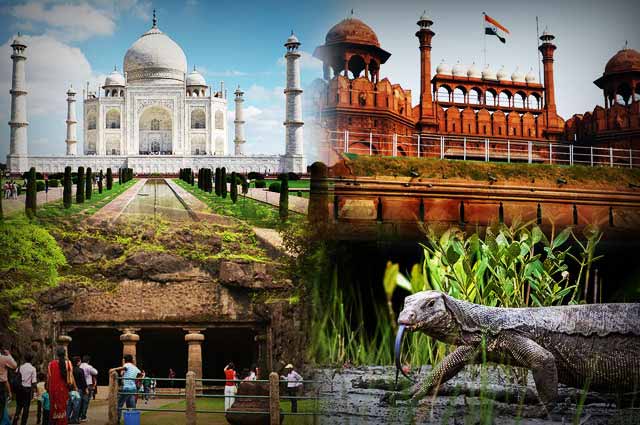
India is a land of diversity. A plethora of religions, cultures, languages, dresses, cuisines etc. is seen in all the four directions. Addition to that is the rich history of the country that belongs to more than thousands of years. We are born in a country whose soil has an exotic heritage. The old forts, historic temples, universities, splendid monuments, caves, sanctuaries, scenic valleys and an endless list boast the numerous heritage sites that are recognized by UNESCO. All these heritage sites have a lot to tell about themselves to the visitors and tourists. Nothing is better than knowing the heritage of the country closely, so, this quick guide gives you a panoramic view of some popular heritage sites that you should visit for a blissful experience.
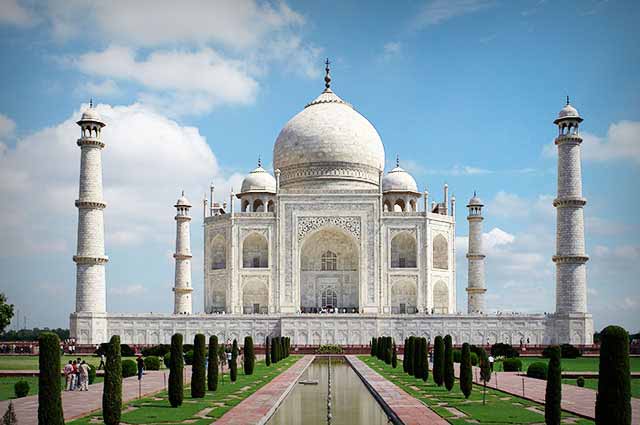
Taj Mahal is the sole monument of eternal love in the world. In Persian language it means the crown of palaces and stands among the 7 wonders of the world. It is the finest example of the Mughal and Persian architecture. Rabindranath Tagore described it beauty as a teardrop on the cheek of eternity; The Taj Mahal is extremely solemn from exteriors and has splendid artwork done interiors.
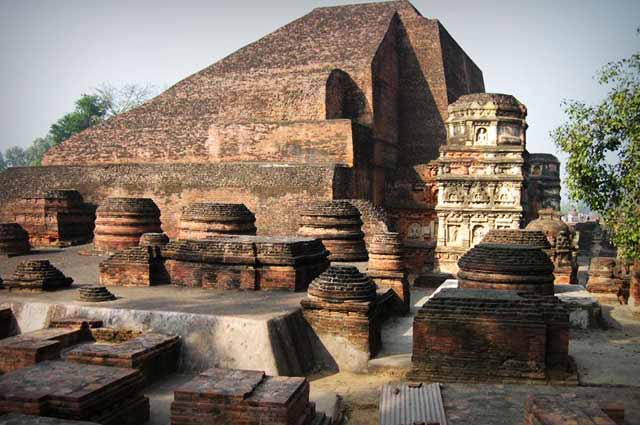
The sobriquet Ancient seat of knowledge is given to Nalanda University that is located in Bihar. Built in the 6th century B.C, Nalanda University was the lone international university in India and was visited by Gautam Buddha and Chinese scholars like Xuan Zand and Huein Tsang. It was invaded thrice and at present has been re-opened after 800 years.
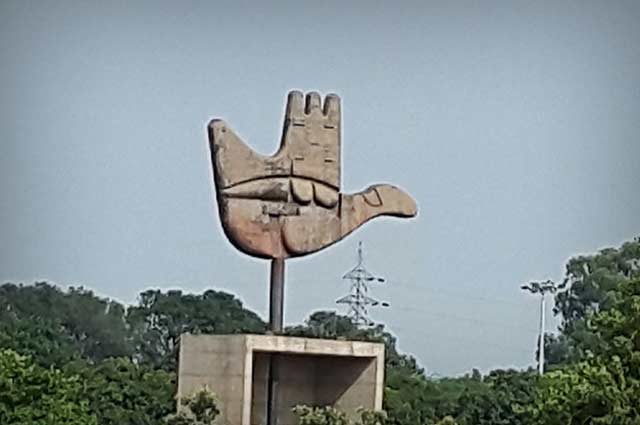
The capitol complex or the palace of assembly complex is the head quarter of governments of both Punjab & Haryana. Spread over 100 acres, the capitol complex is located in sector 1 of Chandigarh and houses the legislative assembly, secretariat, high court and the capitol that was designed by Le Corbusier is a world heritage site. It comprises 3 buildings, 3 monuments and a lake.
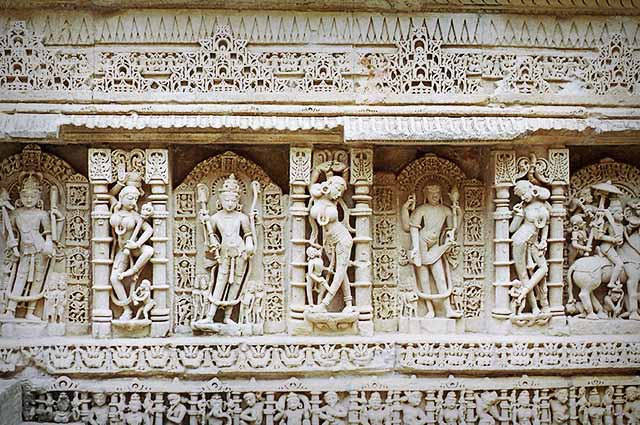
Rani ki Vav or the Queens step-well is believed to be the grandest step well that epitomizes the peak of Maru-Gujarat architectural style. Located on the banks of River Saraswati, Rani ki Vav is a peculiar form of water resource and storage system that represents a unique craftsmanship. It is believed that the water of this step well possessed medicinal qualities due to the presence of herbs. It is recently enlisted as a heritage site by UNESCO.
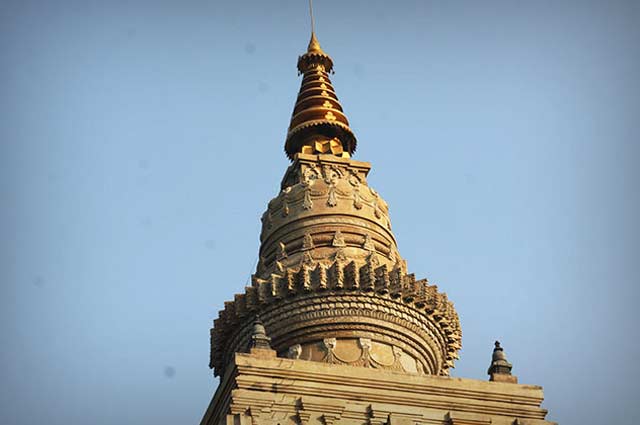
Mahabodhi temple is a heritage site located in Bodh Gaya, Bihar. This Buddhist temple, with a serene ambiance, is also known as the great awakening temple because Gautam Buddha attained enlightenment under the Bodhi tree in the complex of Mahabodhi temple. The architecture reflects the Dravidian style and attracts a huge number of devotees and monks daily.

Hampi was the capital of the Vijayanagar Empire around 1500 AD. Presently, it boasts the ruins of temples, forts and other monuments. The terrain around Hampi is mysterious as well as ruins itself and is surrounded by boulders of different sizes. Virupaksha temple, Hanuman temple, Lotus palace, Mahanavmi Dibba, Hazar Ram temple etc. are some major attractions at Hampi.
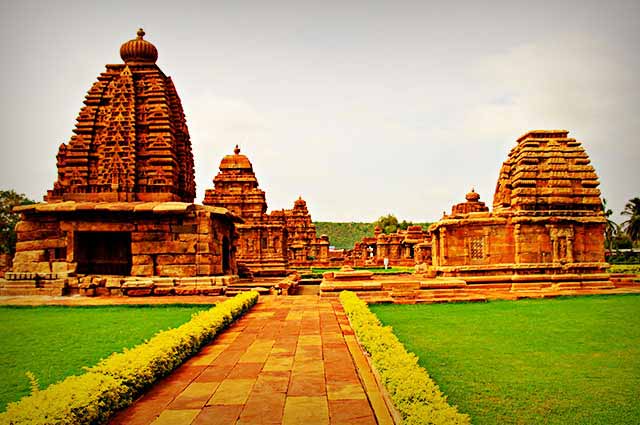
Pattadakal is a town located on the left bank of Malaprabha River in Karnataka and is popular for the fusion of architectural style. The temples, that give this town a unique identity, are major attraction at Pattadakal that display various types of architectures of that period. This heritage site has must visit temples like Jain temple, Kasiviswanatha temple, Sangameshwara temple and others that have a good deal of tourism and architectural scene.
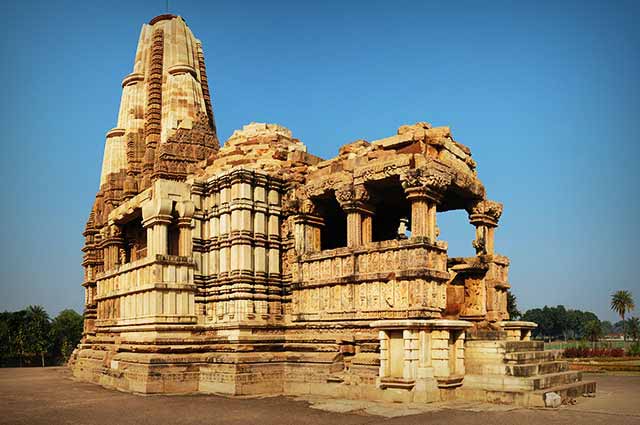
Located in Bundelkhand region of Madhya Pradesh, Khajuraho is defined as an architectural masterpiece due to its stunning temples and carvings. It is a brilliant example of Indian architecture during medieval period. The group of monuments here comprises of Hindu and Jain temples that depict the form of love and eroticism in carved sculptures. Adinath, Vishwanath, Devi Jagdamba etc. are the popular temples in the area.
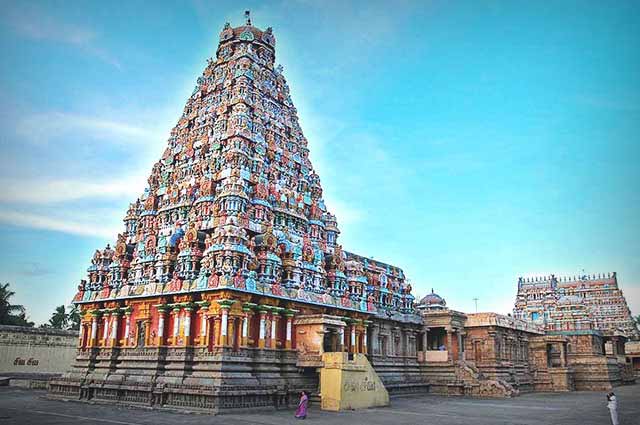
Built in Dravidian architectural style, the great living Chola temples are a world heritage site in Tamil Nadu. The temples were built in south India by the Chola dynasty in 11th and 12th century respectively. Brihadisvara temple at Thanjavur, Gangaikonda Cholapuram temple and Airavatesvara temple at Darasuram are the 3 temples depicting outstanding testimony and ideology of the Chola dynasty.
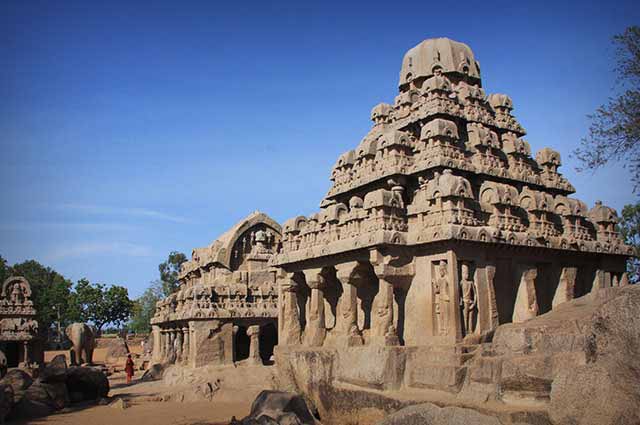
Another popular heritage site in Tamil Nadu, Mahabalipuram is a town famous for the intricately carved temples and its alluring atmosphere. The Group of monuments at Mahabalipuram were constructed by the Pallava dynasty and Shore temple is a fine example of that era. Made up of granite chunks, the Shore temple overlooks the Bay of Bengal in the village of Mahabalipuram that used to be a port during the reign of Narsimhavarman II of Pallava dynasty.
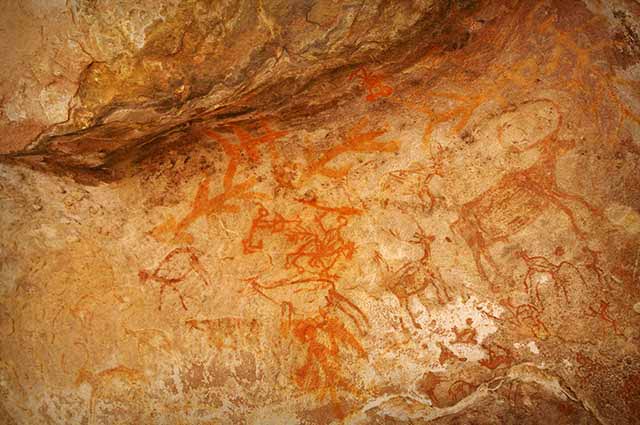
A world heritage site located in the heart of the country, Madhya Pradesh, the rock shelters of Bhimbetka is an archaeological site that depicts the earliest traces of human life on the Indian subcontinent. More of a tourist spot than a city, Bhimbetka is a home to more than 500 rock shelters and caves that have a large number of paintings. The oldest painting found in the excavation dated back 30 thousand years.
Displaying an amalgamation of Hindu, Jain and Buddhist scriptures, Ajanta & Ellora caves is a world heritage site entrenched by the sides of River Waghora in Maharashtra. These caves are among the important tourist heritage destinations owing to the enchanting paintings of Ajanta and intricately carved sculptures of Ellora. The Buddhist caves, Jain caves, Grishneshwar temple and others are the best sites to visit to get a panorama of life in ancient India.
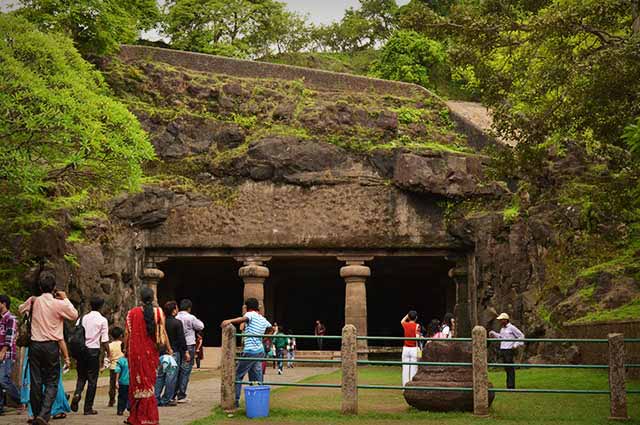
Located 10 kilometers away from the city of Mumbai, the Elephanta Caves are a network of sculpted caves in Elephant Island and are natively known as Gharapurichi Leni. The Elephanta Caves is a specimen of rock cut art and architecture from the medieval India that is divided into 2 sects. The first sect is larger and dedicated to Shaivism whereas the second sect comprises smaller groups of Buddhist caves.

Kaziranga Wildlife Sanctuary is vibrant and a sustained ecology that is a home to 2/3rd population of one horned rhinoceros. The versatile bio-diversity of this sanctuary makes this as an important tourist destination. One horned rhinos are the USP of the sanctuary but other animals like tigers, swamp deer, leopards, buffaloes etc, can be spotted in the vicinity.

Formerly known as Bharatpur, the Keoladeo national park is a mosaic of dry grasslands, swamps and wetlands. The diverse habitat is spread in 29 kilometers and is home to various species of birds, animals, snakes, amphibians and other invertebrates. It was recognized as a heritage site in the year 1971.
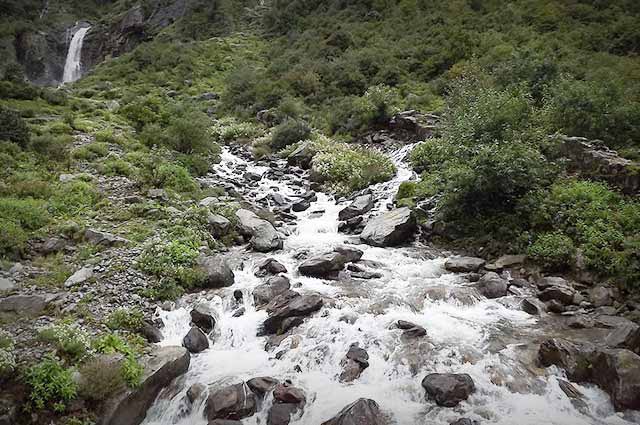
Perching in the foothills of Garhwal Himalayan range, Nanda Devi is the highest peak Uttarakhand and boasts a beautiful combination of flora and fauna. The flora includes the Valley of flowers that is a colorful spread of flowers against the snow capped high mountains. With a passel of scenic waterfalls and streams, this heritage site promises an unforgettable experience to its visitors.

The Sunderbans or Sunderbans National Park that is known for boasting the biggest mangrove forests in the world, is a heritage site and the residence of the Bengal tigers. This area has a silent charm that can amaze with its simplicity and naturalness of its ecological balance in spite of offering a habitat to the most dynamic flora and fauna.
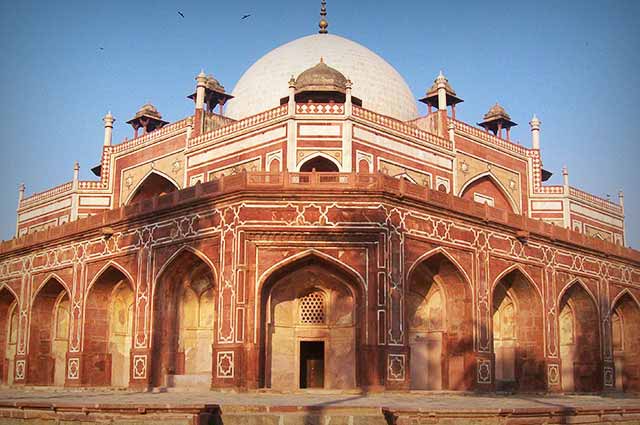
Humayuns Tomb is the first garden tomb in the Indian subcontinent. The architecture of tomb is a mix of Indian, Persian and Islamic elegance. The complex of the tomb majorly incorporates the grave of Humayun, his wives, son and descendants of Mughal emperor Shah Jahan. This tomb is spread over 12,000 square meter and houses over 100 gravestones.
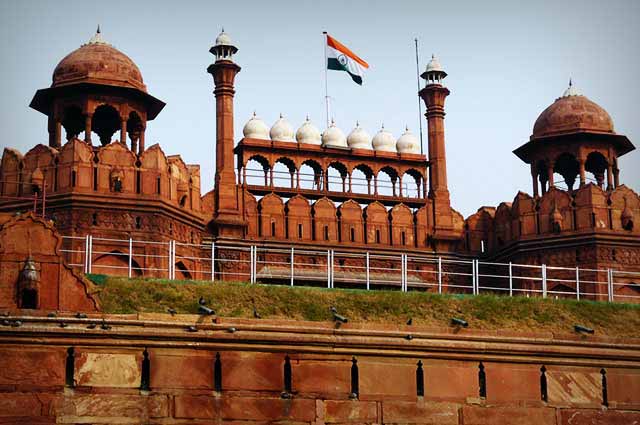
The marvelous structure doesnt need an introduction. Built with red sandstone during the reign of Shah Jahan in the 16th century, Red Fort is an architectural marvel that served as a seat of Mughal supremacy. The fort is an amalgamation of Indian and Persian architecture and an important heritage site as well as a major tourist attraction in the capital city of India.
Located on the western side of Mumbai where it touches the shores of Arabian Sea, Chhatrapati Shivaji Terminus is a formidable example of Victorian Gothic architecture in India. Architected by F.W Stevens, this building was a major mercantile port of India. Presently, it is the busiest railway station in India and an important heritage site.
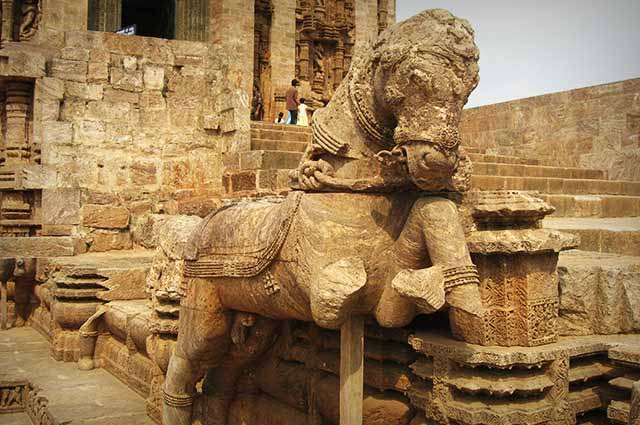
Dedicated to Lord Surya, the sun temple in Konark is a temple carved in the shape of gigantic chariot pulled by a set of 7 horses and stands as a 13th century marvel in the list of Indian heritage sites. Its architecture displays the elegance of Kalinga period. It is slanted towards the east in a manner that sunrise forays the main entrance.
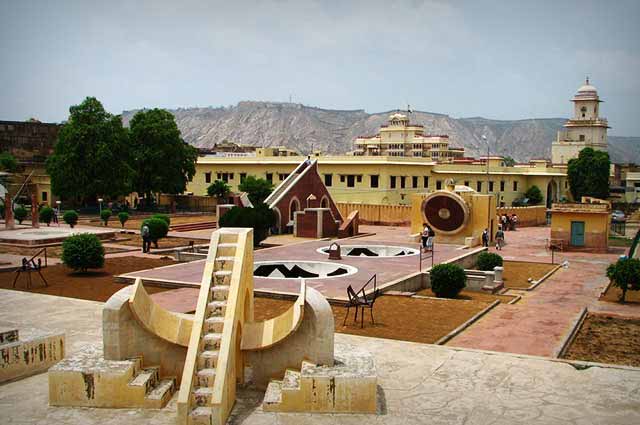
Based in the Pink City, Jantar Mantar is the largest stone astronomical observatory in the country. A heritage site in Rajasthan, it was built by Rajput King Sawai Jai Singh and is a collection of 19 architectural astronomical instruments. Featuring the worlds largest sundial, these instruments allow an individual to observe the celestial positions with naked eye.
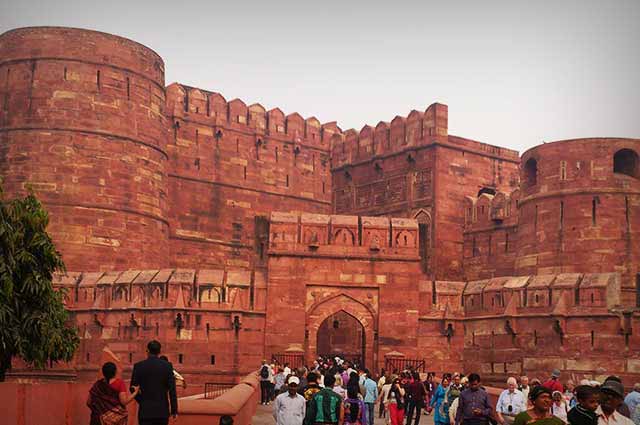
Standing on the basin of Yamuna, Agra Fort is known as the Red Fort of Agra and is situated 2.5 kilometers away from Taj Mahal. Agra Fort, a heritage site, is a magnificent monument displaying the perfection of Mughal architecture. The premises of the fort include the dainty architectures like pearl mosque, Diwan-E-Khas, Diwan-E-Aam and Jahangiri Mahal.
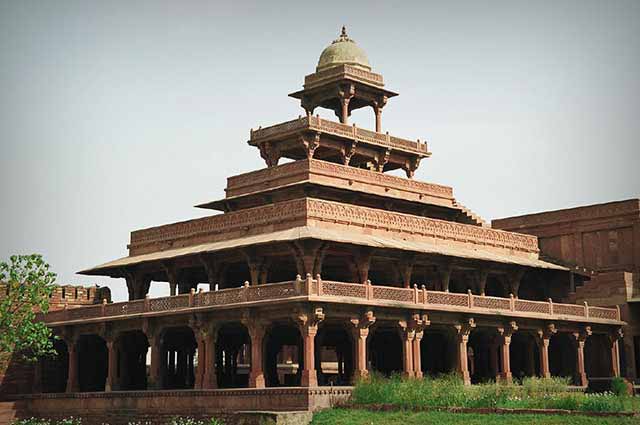
Fatehpur Sikri is a city that is constructed with red sandstone and can be considered as Indo-Islamic finesse. It was constructed by Mughal emperor Akbar to honor Sheikh Chishti, whose prophecy came true, and now is a heritage site as well as a tourist attraction. Theres a stunning mosque that was built during Akbars reign and is still used for offering namaaz.
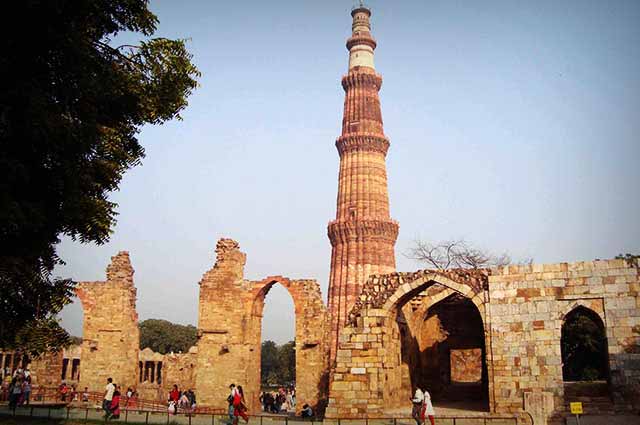
Qutb Minar does not require any introduction as it is the tallest minaret in the capital of India and another masterpiece of Mughal architecture. Built by Mughal ruler Qutbuddin Aibak and further by his sons, Qutub Minar and its complex is known as a heritage site. Its complex includes the graves of Mughal family and iron pillar, erected by Chandragupta II, that hasnt rusted till date!
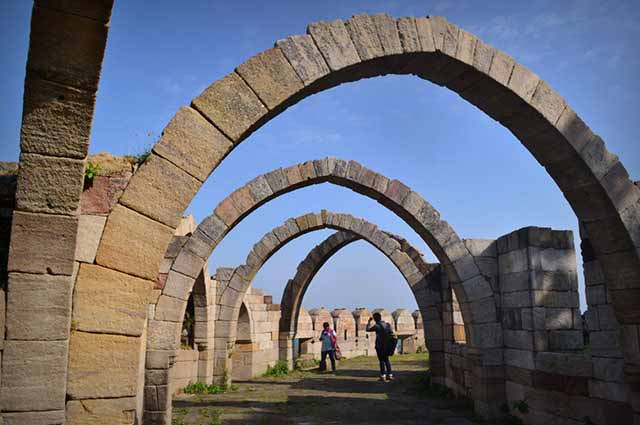
Amidst the Pavgadh hills, the marvelous archaeological park is set in the heart of the city of Champaner and is tagged as an elite world heritage site. Consisting of spending architectures this park also hold a legendary trivia according to a chunk of Pavgadh hills is a part of the Himalayas that were carried by Hanuman to Lanka. Such history makes it an intriguing place to visit.
The rhetorical global fact is that India is the unique country that boasts diversity in all colors. Indias ancient and exotic history has given a lot to the world and to countrys own land. There are many heritage sites present across the latitudes and longitudes that pass through the country. Most of these heritage sites, that are the ruined remains of marvels, have a lot of information engraved and carved on walls that speak about the ancient culture and civilizations that existed hundreds of years ago. It doesnt matter that our country is divided by a profusion of language or culture, but, it is united by the exuberant heritage that we all share. If you thrive to learn about the ancient history and want to spend a unique vacation then these heritage sites will not let you down.